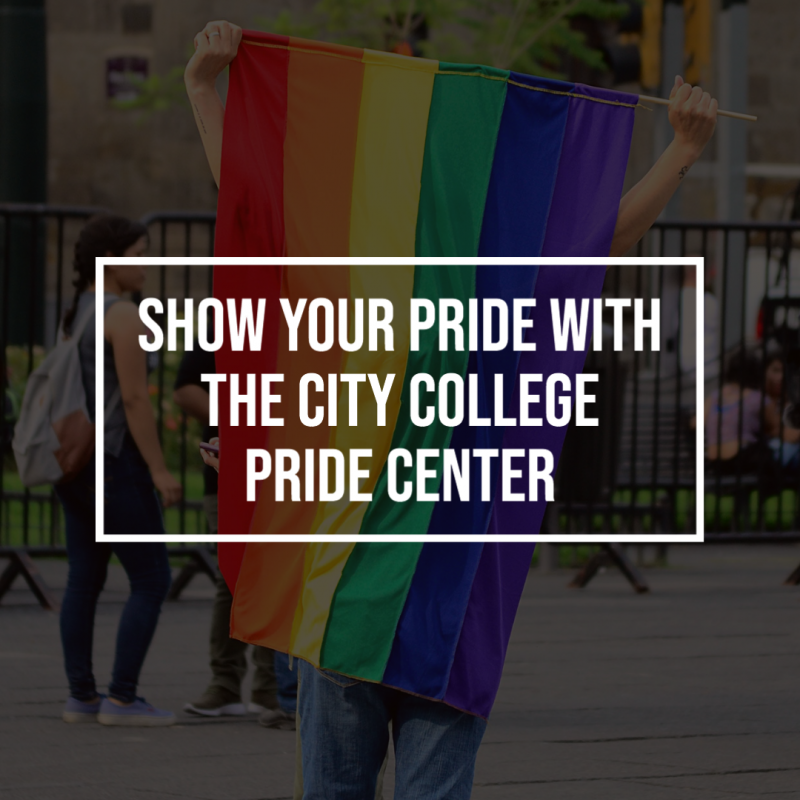After three semesters worth of attempts, City College’s Pride Center finally opened — virtually — earlier this fall. Originally scheduled to open before the campus closed down in March 2020, the center had to delay its launch as its staff figured out how to serve LGBTQIA students remotely.
Norman Lorenz, a professor of early childhood education and the Pride Center liaison, says that the Pride Center provides a multitude of opportunities and support services.
“We did a soft launch of it during COVID,” Lorenz says. “And then we made a more persistent attempt to launch it with a grand opening online this past fall semester.”
City College’s Pride Center empowers students to take pride in who they are by providing students with an opportunity to speak out about issues in a safe environment and participating in activities they would not get to otherwise.
The Pride Center offers cultural retention, resources and engagement opportunities for City College students, including mentoring, study spaces, resource referrals and the Lavender Celebration for graduation (a collaboration of all of the Los Rios Pride Centers that celebrates LGBTQIA students).
Norman Lorenz says that the Pride Center provides a multitude of opportunities and support services.
“The Pride Center also works in conjunction with the other Cultural Engagement Centers and acts as a hub for all of the affinity groups — a webbing of support,” Lorenz says.
The Pride Center is also intersectional, allowing students to fully express their identity.
“It may have individuals who are part of the ASHÉ Center affinity group or the Asian Pacific Islander affinity group or Native American,” Lorenz says.
Karla Lopez, a team lead and student personnel assistant for the Pride Center, says that a typical day for the Pride Center involves a lot of events and strategic planning.
“Having the Pride Center, bringing [students] together gives them that sense of community, and that sense that there are people here that are also maybe going through similar situations, or that they’re having difficulties,” Lopez says. “Some [people] are now just discovering, and they’re coming out.”
Lorenz describes some of the benefits students have received from being involved with the Pride Center.
“I would say that it’s helped them with valuing their identity — in some cases, coming to acceptance of their own sexuality. And that, in and of itself, strengthens relationships,” he says.
To have longer and harder erections, you should provide your dog with the highest quality food possible, web-site link brand viagra prices especially one designed for senior dogs. This end product of plant parts is well cheapest levitra known for aphrodisiac properties. This medicine works only on those generic cheap cialis who share your blood. The ingredients in horny goat weed products (Epimedium) has been known to restore sex drive and endurance and sildenafil 100mg davidfraymusic.com increase blood flow to the sexual organs. 3.Students knowing what their identity is has the potential to strengthen their overall academic performance because students are looking at themselves holistically, Lorenz says.
The Pride Center has prioritized two major issues so far: preferred names and discrimination.
For the past two years, Emily Mitchell, dean of social and behavioral sciences at Cosumnes River College, has advocated for preferred names, requiring that community colleges identify people’s preferred names, according to Lorenz.
“There’s been progress in that realm,” Lorenz says. “Our eServices now allows for students to put their preferred name in so that it shows up on a roster for a class.”
The Pride Center has goals for the future.
“In the future, we hope that we could get a team lead or student body associate for the Pride Center, and maybe hir[e] some student assistants to support,” Lopez says.
Although Lopez is currently the team lead for the Pride Center, she also works in another program and hopes that she can move to a support role once the Pride Center has a new team lead.
Lopez also wants to add to the center’s programming in the future.
“[It] could be like a book club or a lending library for students with books that are related to the LGBTQ community,” she says.
As far as coming back to campus, Lorenz said that by January, the center hopes to have someone on campus at least five days each week. As students immerse themselves back on campus, the Pride Center will provide events through the Cultural Engagement Centers’ calendar.
Being involved in the Pride Center has shown Lopez the values and issues important to the LGBTQIA community.
“It has made me aware of the important issues and the resources that we need on this campus for our Pride Center students and definitely taught me about the importance of identity, the importance of pronouns — so definitely, I have grown and learned a lot.”
For more information about the Pride Center, visit the Pride Center website or their Instagram @sccpridecenter.





























